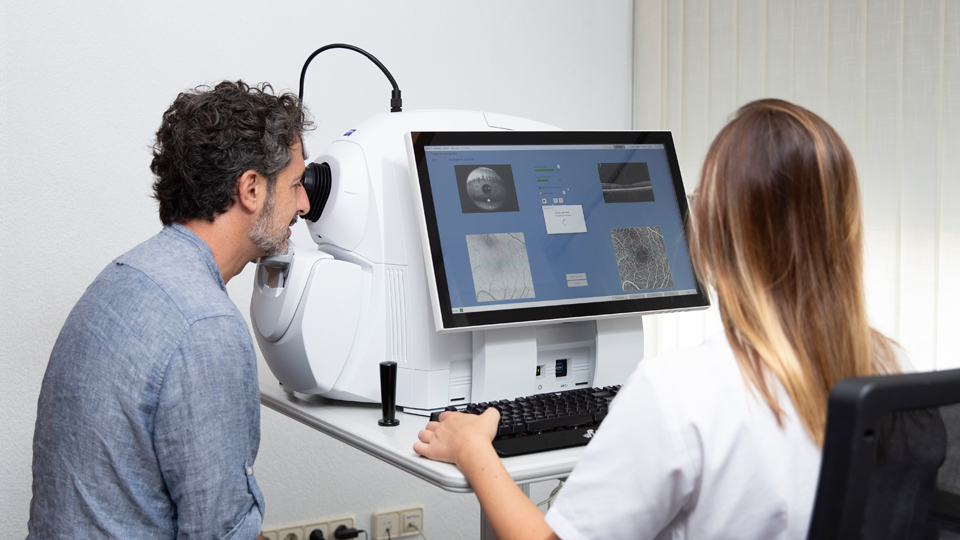10/07/2025
Regular eye examinations make it possible to detect potential problems in time and ensure proper eye care.
Maintaining good visual health is essential for enjoying an optimal quality of life.
Recommended frequency for eye exams by age
How often you should see an ophthalmologist depends on your age and other factors:
- Children and adolescents (up to 18 years old): A first eye exam is recommended between the ages of 3 and 5. After that, periodic check-ups are advisable, especially before starting school and during adolescence, to detect and correct possible refractive errors that could affect academic performance.
- Young adults (18 to 39 years old): If there are no symptoms or history of vision problems, an exam every two years is sufficient. However, if you wear contact lenses or experience discomfort, it is preferable to have a yearly check-up.
- Middle-aged adults (40 to 64 years old): From the age of 40, the risk of developing eye conditions such as glaucoma or macular degeneration increases. Therefore, it is advisable to have an eye exam every 1 to 2 years.
- Over 65s: At this stage, annual check-ups are recommended to monitor and treat age-related conditions such as cataracts or macular degeneration in a timely manner.
Importance of regular eye examinations
Regular eye check-ups are not only useful for updating your glasses or contact lens prescription, but also allow for:
- Detection of asymptomatic diseases: Some conditions, such as glaucoma or diabetic retinopathy, can develop without clear symptoms in their early stages. Early detection is key to preventing irreversible damage.
- Preventing complications: Identifying and treating vision problems early can stop them from progressing and avoid more serious complications.
- Maintaining overall health: Eye exams can reveal signs of other medical conditions such as high blood pressure or diabetes, making early diagnosis and management possible.
Factors that may require more frequent check-ups
Certain conditions may require you to see an ophthalmologist more regularly:
- Family history of eye disease: If there are cases of glaucoma, macular degeneration or other eye conditions in your family, more frequent monitoring is recommended.
- Systemic diseases: People with diabetes or high blood pressure are at greater risk of developing eye problems and should have closer follow-up.
- Use of certain medications: Some drugs can have side effects that affect vision and require regular monitoring.
- Visual symptoms: Symptoms such as blurred vision, eye pain, flashes of light or loss of peripheral vision are signs that you should see a specialist immediately.
Having regular eye examinations is essential to preserve visual health and prevent diseases that could threaten your eyesight. Adjusting the frequency of these exams according to age, medical history and individual conditions ensures early detection and timely treatment of possible disorders. Don’t wait for symptoms to appear – prevention is the key to healthy vision.
Dr Federico Trejos, ophthalmologist at the Barraquer Ophthalmology Centre
